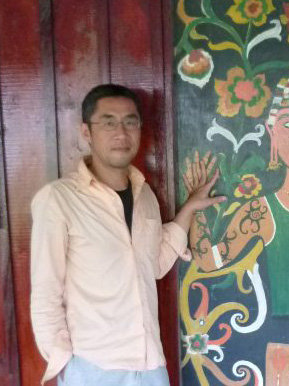ISHIKAWA Noboru

ishikawa cseas.kyoto-u.ac.jp
Personal site http://personal.cseas.kyoto-u.ac.jp/~ishikawa/index_en.html
Research Departments・Position
Global Humanosphere・Professor
Area
Area Studies, Social Anthropology
Research Interests / Keywords
・tropical biomass society
・plantation and society
Overview
| Transdisciplinary Studies on Plantations in Southeast Asia |
|---|
|
This research presents yet another geological epoch, the Plantationocene. While the idea of the Anthropocene has gained considerable currency in recent years, I instead use this concept of Plantationocene to offer fresh perspectives that go beyond conventional, human-centric understandings of nature as well as the human/nature dichotomy through case studies of multispecies in plantation systems. Through this approach, I try to bridge a deep divide between the natural sciences and social sciences, combine ethnographic and data-driven methodologies, and present an empirically grounded and historically informed study of human, non-human and their environments. |
| The Stateless in Southeast Asia |
|
How can Southeast Asia be researched and written differently, as we move our focus away from the state? The purpose of this panel is to see how we can contribute to the balanced understanding of Southeast Asia with a focus on the stateless. Using historical, archaeological and ethnographic methods, covering both mainland and maritime regions of Southeast Asia, our case studies will show that stateless spaces — dry and wet zomias — take a variety of forms. Through case studies, we will show the historical vicissitudes and geographical variations of the stateless in Southeast Asia. |
| Wet Zomias in Borneo |
|
My research questions the state-centered perspective on the landscape of maritime Southeast Asia, which stresses a stark difference between socio-cultural formations of upriver (hulu) and downriver (hilir). Based on field research in central Sarawak, Malaysia, I argue that such a binary opposition has understated empirical diversity and dynamics and led to partial understanding of maritime societies of Southeast Asia. |
Research funds
| Type | Theme | Period |
|---|---|---|
| Grant-in-Aid for Scientific Research (C) | ボルネオ社会編成の基礎研究:汽水域・流域・間流域からの新モデル構築 | 2017 – 2020 |
| Grant-in-Aid for Scientific Research (B) | Bio- and agro-diversity in oil-palm-based anthropogenic landscapes in Tropical Africa | 2013 – 2016 |